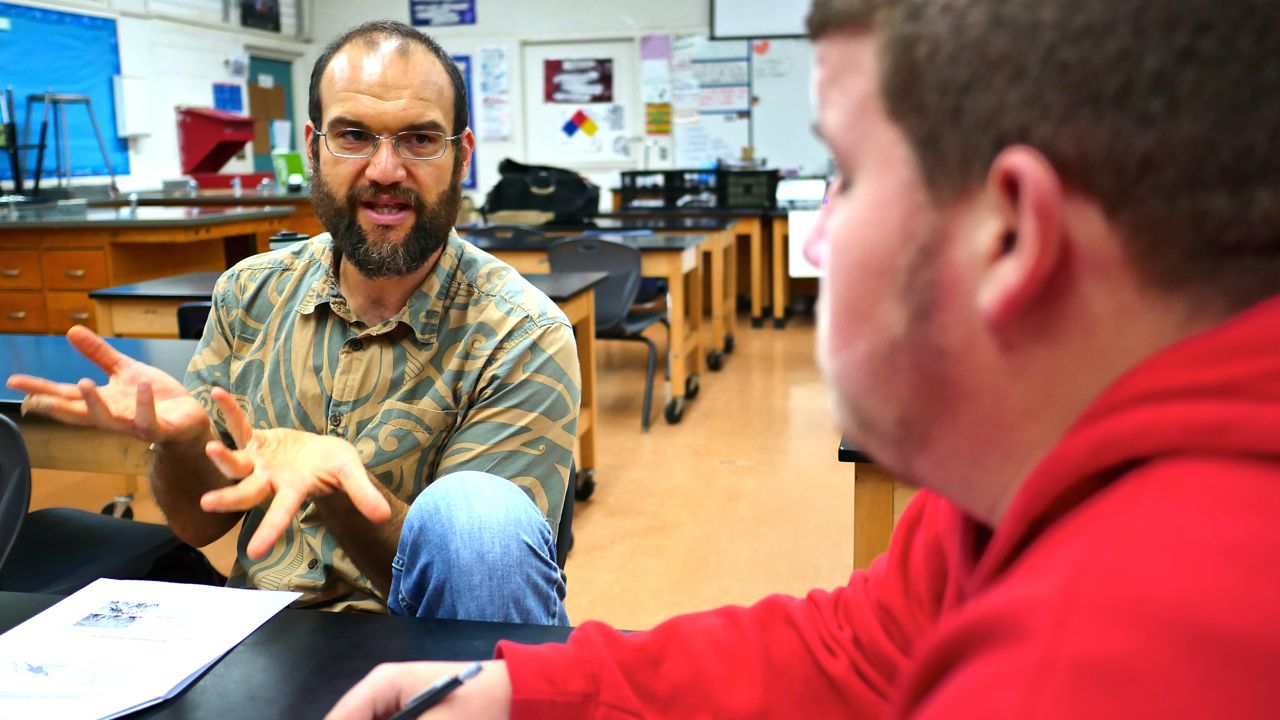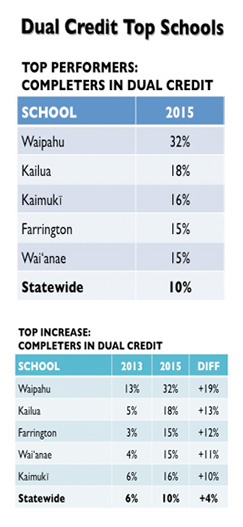

On a sunny Thursday afternoon at Waiʻanae High School, a handful of students listened intently as University of Hawaiʻi–West Oʻahu Associate Professor Kealani Cook talked about aboriginal peoples as part of their History 151 class. The students were earning college credits as part of the growing Early College Program in Hawaiʻi.
Early College is an important way for students from across the state to get a head start by earning college credits for courses taken while still in high school. Increasing numbers of Hawaiʻi high school students are utilizing Early College and other dual-credit programs.
Waiʻanae High School student Jeffrey Jones, Jr. said, “Early college is a really good opportunity for both me and my classmates. It gives us a feel for what we are going to get when we become college students.”
Hawaiʻi P-20 Partnerships for Education, an organization that works on programs and policy to strengthen the pipeline from early childhood through post-secondary education, recently released a report that shows a growing number of Hawaiʻi’s public high school students are taking college-level courses and earning dual credits—for both high school and college—before they graduate.
Up to 10 percent of the class of 2015 statewide earned college credits from the University of Hawaiʻi while attending high school, up four percent from the class of 2013.
“The momentum around the dual credit and early college initiatives is incredible, and the increase in dual credit completion by high school students is evidence of the strong partnership between the Hawaiʻi Department of Education and UH,” said Karen Lee, executive director of Hawaiʻi P-20 Partnerships for Education. “We are starting to see the results of this program in the college enrollment rates and preparation for college-level courses by our students who participated.”
The increase in dual-credit participation and college-level preparation is a boost toward achieving Hawaiʻi’s 55 by ’25 education goal of 55 percent of working age adults holding a 2- or 4-year college degree by 2025.

“The reason why we’re really pushing this is because many national reports are showing in Hawaiʻi more jobs are requiring post-secondary education,” said Lee. “So something beyond high school in order for students to get a living wage job.”
Research shows that participation in college-level coursework during high school can increase students’ exposure and aspirations for postsecondary success. High school students who graduate with college credits are more likely to enroll, persist and succeed in higher education.
Czarina Galario, a Waipahu High School student said, “Waipahu High School is offering it to us for free. I know other schools don’t have it so we might as well take advantage of it, because it’s dual credits for high school and for college.”
—By Kelli Trifonovitch

